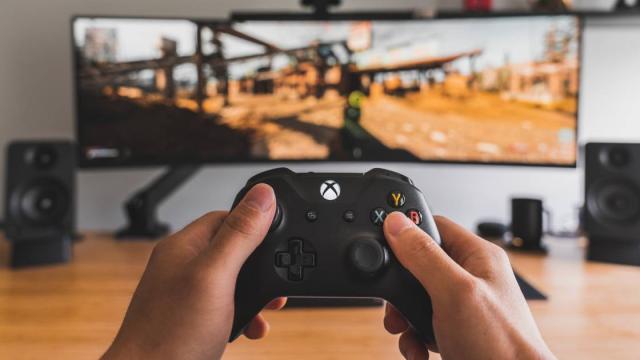
Once upon a time, not so long ago, careers in gaming (if you wanted to stay in Australia) were few and far between. Over the last decade, however, things have started to change and there is a growing number of opportunities.
Just ask Felix Strangio, an alumnus of Swinburne University of Technology who has been working in the game design industry for six years now. He’s currently working in Melbourne at game development studio, League of Geeks. We asked him a few questions about what the industry is like in Australia, how it’s changed, and what that means for the future.
[related_content first=”1013468″]
How is the Australian game design industry going now compared to say, ten years ago?
To put it succinctly, the last ten years for the Australian games industry has been a rocky road. The fallout of the GFC led to mass studio closures, redundancies and talent loss with industry workers moving into adjacent industries or overseas.
Despite this, however, the Australian industry has grown in strength and stability to rise from the ashes, so to speak. There are too many factors here to list them all, but notable ones include:
- Excellent longstanding support from State Governments.
- A strong, supportive independent development scene that fosters creativity.
- The development of original, Australian-owned IP.
- Internationally recognised industry events like Freeplay and Games Connect Asia Pacific, as well as large consumer events such as PAX AUS and Melbourne International Games Week.
Looking forward, the recently announced Federal Digital Games Tax Offset will be a huge boon for the Australian industry. It will mean more jobs in the sector and even more creative and technical innovation coming out of Australia.
What impact has pro gaming and esports had on the industry in Australia?
While pro gaming garners an ever-growing audience and huge global communities, the vast majority of games played in these professional leagues are not Australian-made.
That said, the rise in pro gaming communities and venues (for example, Fortress and GGEzy here in Melbourne) offer an opportunity for Australian game developers to engage with these fans more intimately and closer to home. For the fans, that could mean tailored access to home-grown games. For developers that could mean reaching a huge new audience.
Has the popularity of gaming and esports changed the way people learn about the industry?
Unfortunately, there’s always been a gulf of misunderstanding between game consumers and game developers. I think a lot of our craft is still largely cloaked in mystery and misconception.
However, I do believe that the ‘curtain’ is beginning to draw back more and more, with interest in the production of games steadily growing among fans. There are excellent resources out there (such as Noclip documentaries or GDC talks on Youtube) that allow fans to see what goes into making the products they love.
Even in pop culture, [the prevalence of characters working in] game development is growing — [as seen in] recent TV shows like Russian Doll and Mythic Quest.
[related_content first=”1013468″]
Do you think gaming has a broader role in education now?
I believe that interactive mediums — whether fully-fledged ‘games’ or bespoke education experiences — play an increasingly significant role in education.
Interactive mediums allow for active, embodied learning which has proven to be a powerful educational tool. In an interactive context, students and material engage in dialogue with one another, rather than the traditional linear relationship via textbooks and lectures etc.
Obviously, interactive experiences won’t entirely replace traditional teaching methods anytime soon, but they offer a powerful supplement.
How would you like to see video games used as an educational tool?
One aspect of games as an interactive medium that I feel strongly about is their capacity to be empathy machines. Games can transport and immerse players into realities outside of their day-to-day lived experience like no other medium. They deliver heightened, emotive experiences that intimately engage the player in their subject matter.
For example, take This War of Mine or Papers, Please which are each classic ‘Serious Games’. These titles use their fictionalised worlds to reflect real-world issues. You don’t passively observe these experiences, they occur to and through you as a player.
I think they are excellent examples for showing the potential for games as a tool for immersing students in real-world subject matter.
Any advice for people looking to enter the game design industry in Aus?
Seek information sources that give a peek behind the curtain of game production. As I said before, there’s a lack of awareness around what goes into making a game which can lead to a disconnect between student expectations and industry realities.
Another thing I’d encourage is to try different jobs. There’s a range of roles in game development studios suited to all kinds of folk, many of which aren’t apparent from the outside looking in.
Another tried and true bit of advice is to build a portfolio. In creative technology, you need to be able to succinctly prove your skillset to prospective employers and a well-tailored portfolio is the best way to do so.
Lastly, it’s important to be aware of the attitude and collaborative skills you bring to the table. Games are creative tech, so they require effective, creative collaboration. The best way to hone your collaborative skills is to work on team projects, be they university projects, side projects or Game Jams. The more creative team projects you have under your belt, the stronger this skill set will be.
[related_content first=”1691806″]
Want to know more about careers in game design? Apply at Swinburne University of Technology and gain the necessary skills to secure your dream job.
